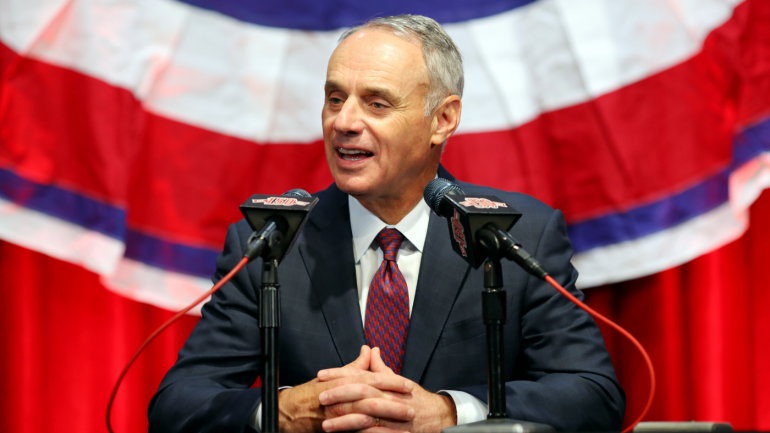
On Tuesday, Major League Baseball announced the logistics behind the 2020 playoffs. This year's postseason will be unprecedented for two reasons: 1) the games, by and large, will be played at neutral sites; and 2) the field will be expanded, from 10 teams to 16, or more than half the sport. If the franchise owners get their wish, the second part will become the new norm.
Commissioner Rob Manfred told Dave Sheinin of the Washington Post that "an overwhelming majority" of owners had endorsed the expanded postseason even before the pandemic, and that he expects the format to stay beyond the 2020 season.
This shouldn't come as a particular surprise. An expanded postseason means more playoff games, which, in turn means more playoff broadcast revenue. Once fans are allowed to attend games again, the league will also be making greater sums of gate revenue.
Likewise, lowering the bar to entry can suppress player salaries, leading to more profit at the ownership level. Teams will no longer have to worry about fielding a roster good enough to win 90-plus games to reach October; they just have to clear the 80-something threshold. This effect could be exacerbated if division winners gain no perks over the second-place finishers, or the wild card teams, like the option to select their first-round foes.
Manfred wasn't as bullish about the other rule changes from this season sticking for the long haul, such as the universal DH, the modified game length for doubleheaders, or the runner-on-second extra-innings rules. Speculation around the league, though, has had those tweaks remaining in place.
The owners and the Players Association will have ample opportunity to hash out all these details before the 2021 season, and even more time before the 2022 season. The league's Collective Bargaining Agreement is set to expire next winter.






















